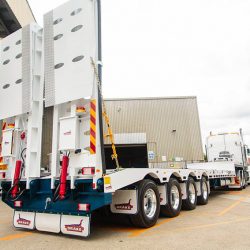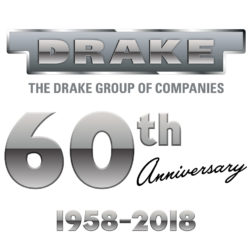The internet of things (IoT) is not something reserved for digital-focused businesses, it affects and aims to elevate every industry, including trailer manufacturers like us. Of all the industries seeking to harness the power of digitally connected devices, industrial (manufacturing, fleet management, transport etc) are the ones seeing the immediate benefit of deploying this technology across their business and products.
Over the next two articles, we’ll be delving into the industrial Internet of Things. In part one, we’ll lay down the basics by explaining what exactly the Internet of Things is and who are the industries most affected by IoT devices. Part two will focus on the new era of manufacturing.
What is the Internet of Things?
You’ve heard a digital-savvy colleague, friend or family member drop this term into conversation, but what does it refer to? To put it simply, the Internet of Things refers to the concept of connecting any device (with an on and off switch) to the internet (and/or to each other). Everyday items such as your smartphone, smart speakers, digital kitchen appliances, FitBit and e-reader all fall into the category of IoT devices.
According to the analyst firm Gartner, by 2020 there should be 26 billion connected devices, while others estimate the number to be much, much higher – think in the hundreds of billions!
But what about IoT devices for the industrial sector? These industries are already experiencing the IoT revolution and benefiting from new productivity, revenue streams and services thanks to the addition of low-cost, low-energy devices.
Smart roads
One of the best IoT technologies we’ve seen on our roads (which has been around for a while, mind you) has been traffic light sensors. While most work on timers, they can also change on their own if the data collected recognises that there’s no traffic in one direction, yet congestion in the other. The real-time data from traffic lights can help to improve road planning and deal with congestion issues.
Smart grid
Power grids are becoming more like smart grids, with better options for energy efficiency including smart energy readers, smart outlets and electric car charging stations. Further to this, having more sensors spread across the energy network that send data back to base allows for better information on wastage in the industry.
Agriculture
IoT devices in agriculture are going gangbusters. Farmers are using drones to capture data and imagery of their fields. They’re using multiple devices to monitor environmental conditions, moisture levels, pest infiltration and soil quality. The data can then alert built-in systems, such as automatic watering, to action in certain areas of the farm, which helps to minimise wastage. IoT apps can also detect which areas have already been fertilised (or accidentally missed), determine whether the land is too dry and predict the best times for future yields.
Fleet management
If you own a large fleet, it’s only natural you’d want to know where those vehicles always are for better planning and problem management. Utilising GPS data, you can report where a breakdown has occurred to the exact location or, if congestion is causing delays to a job, you can have the ability to reroute.
We’ve seen this lately with mobile mechanics who, for example, are running late to a job due to congestion, will be able to send an alert to their customer with their estimated time of arrival.
Other ways we have seen IoT technology in fleet management is with fuel companies and owners of large fleets of transportation vehicles. Where accurate, timely information is given about the amount of fuel delivered, engine hours, odometer etc which can allow for better planning of fuel delivery.
What about IoT in manufacturing?
The industrial internet of things is immersed in the manufacturing industry, so much so that it has already led to the fourth industrial revolution: Industry 4.0. Smart technologies in manufacturing improve measurements, automated controls, plant optimisation, health and safety. If you’re interested in learning more about the kinds of IoT devices used in manufacturing, especially here at The Drake Group, check out Part Two in our series.
The Drake Group has always pushed the boundaries of what’s possible in trailer manufacturing. Having specialised in heavy haulage trailers for 60 years, we know what works and how to integrate the very latest IoT technologies into our business. To see how it works, check out our range of trailers or contact us today.


